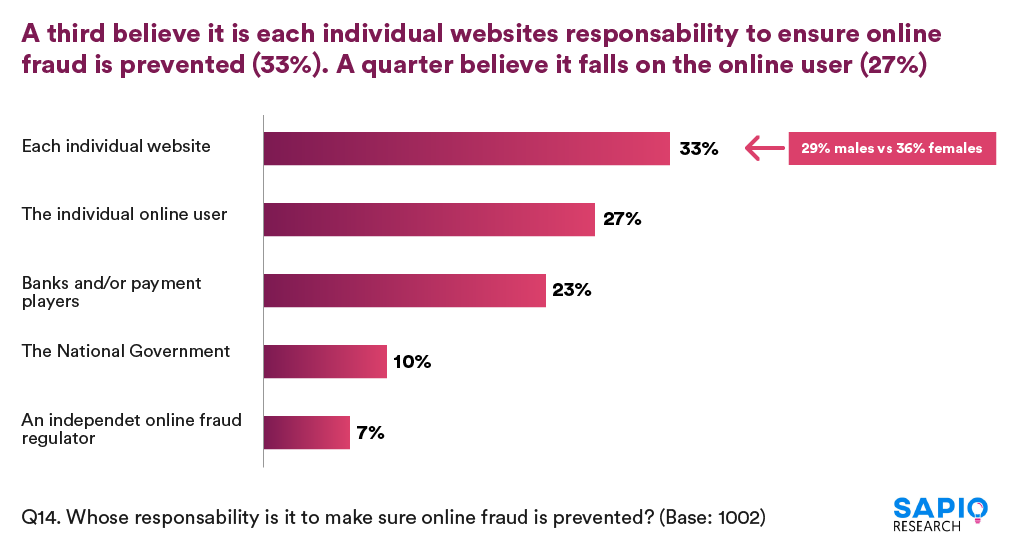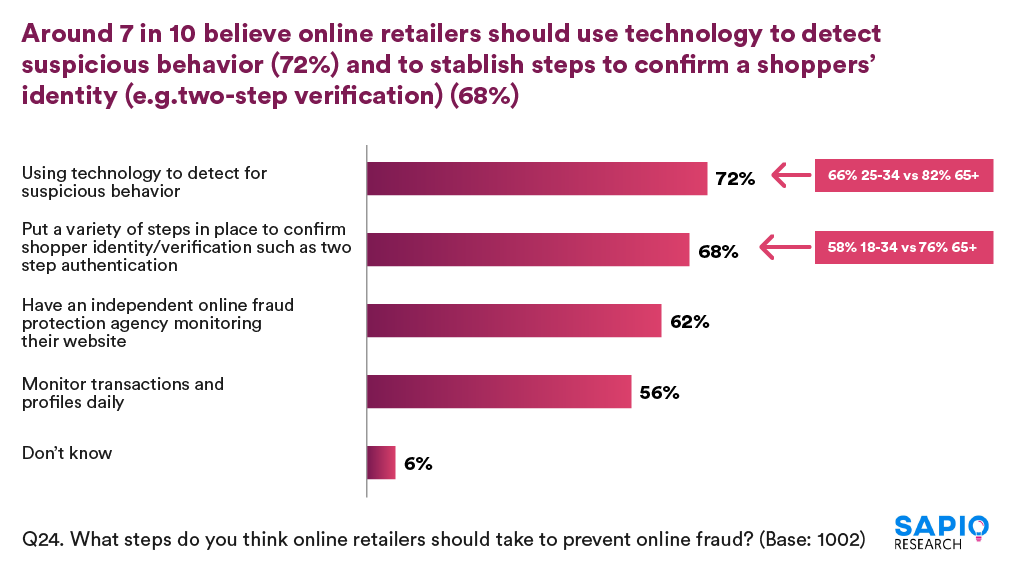Research: Fraud transparency is key to earning US consumer trust
Can online merchants earn more customer trust by talking about fraud? Yes, according to a recent survey of more than a thousand US online shoppers. It sounds counterintuitive, but raising the topic of fraud can reassure customers that your online store is safe to shop in. Here’s a look at the survey results and how online merchants can use them to build stronger customer relationships.
ClearSale commissioned Sapio Research to conduct the survey in March 2020. Using email and an online survey, the firm interviewed over a thousand Americans who shop online at least every few months. Among the key findings:
- 81% of US online shoppers suspect that online fraud is common
- 92% say security is important to them when they shop online
- 83% “would be more likely to use online shopping websites if reassured they had fraud protection”
- 51% have abandoned an online purchase because they didn’t trust the site with their credit card information.
Security concerns for online shoppers and consequences for merchants
Although most of the surveyed shoppers felt shopping online is at least as safe or safer than in-person shopping, others had questions about how their data is stored and protected.
Among the 13% of respondents who believe that online shopping is riskier than making in-store purchases, 77% said they “don’t know where [their] details are being stored and who has access to them.” Seventy-one percent worry that “the website might not have adequate security measures to prevent online fraud.”

These concerns are likely fueled by a steady stream of headlines about customer data breaches at companies of all kinds and by the pervasiveness of card-not-present (CNP) fraud. CNP fraud losses could reach $12 billion this year, and 55% of the respondents in Sapio’s survey said they’d been the victims of online fraud at least once.
Whether they’d been the victims of online fraud or not, 65% of the survey participants said they wouldn’t go back to a website “after having a fraudulent experience with them.” Interestingly, younger shoppers were much more likely to abandon a retailer after fraud than older consumers. Twenty-nine percent of the 25-to-34-year olds in the survey said they’d never go back, while only 7% of shoppers age 65 and up said the same.
That means that merchants with customers in this age group risk customer churn after a CNP fraud or account takeover incident, even if the circumstances were beyond their control. Which brings us to the topic of who shoppers hold responsible for online fraud prevention.
Who’s responsible for online shopping security?
When the survey asked consumers who’s responsible for preventing online fraud, the most common answer was “each individual website,” more than the number who felt that it’s the responsibility of consumers, banks, governments, or fraud regulators.
These consumers do take steps to protect their data while they shop, with 87% checking websites to make sure they’re legitimate before they buy anything and 82% steering clear of sharing personal data with unverified sites. Nearly 40% say they use PayPal or another digital wallet to avoid sharing their credit card data with online stores.

What all of this means for merchants is that if something happens to a customer’s personal data or payment information because of an interaction with your site, consumers are likely to hold your store responsible. As we’ve already seen, they may never come back. And although the survey didn’t put the question to consumers, at least some victims of fraud will likely share their experience with friends and followers on social media. That negative word-of-mouth amplifies the damage to your store and raises the cost of acquiring new customers.
With these things in mind, how can ecommerce merchants earn customers’ trust and keep it?
Steps ecommerce merchants can take to reassure customers
What may be most surprising about the survey is that most respondents want merchants to address the topic of fraud head-on – recall that 83% said fraud protection information would make them more likely to shop at a store. But few online stores mention fraud or data security, in part because they worry about planting fears in their shoppers.
But shoppers are already concerned about fraud, and it’s clear from the number of stores that now display pandemic-related health and safety protocols that information about how merchants handle unpleasant issues can reassure consumers.

Here are the steps we recommend, based on the survey results:
- Make anti-fraud education part of the customer experience. 85% say they’d likely read and act on a message with tips to avoid online fraud before making a purchase from an online store.
- Adopt fraud prevention technology and let customers know your store uses it. 72% of shoppers think online retailers should use tech to ferret out “suspicious behavior.” (Just don’t share so much information that fraudsters can work around your safeguards.)
- Find ways to balance customer authentication with customer experience. Nearly 70% support extra steps to confirm their identity, such as two-factor authentication. However, any time you add steps to check out or login, it’s wise to watch for increases in cart or session abandonment and adjust your protocols as needed.
- Bring in outside fraud-prevention support and add information about it to your site. 62% of the consumers surveyed believe online stores should “have an independent online fraud protection agency monitoring their website.”
- Monitor customer behavior and reach out if something seems off. More than half of respondents said they think web stores should “monitor transactions and profiles daily.” Your fraud prevention team can flag suspicious account activity and reach out to verify it with your customers. If it’s not them, you’ve stopped fraud. If it is them, verifying that in a customer-centric way can show them that your store is watching out for their safety.
Ecommerce fraud isn’t a pleasant topic for merchants but sharing fraud prevention information can make your customers feel safer. When your store addresses their concerns, you create a better customer experience, earn their trust, and increase the likelihood of a longer relationship.
Original article at: https://paymentsnext.com/research-transparency-is-key-to-earning-us-consumer-trust/
 Rafael Lourenco
Rafael Lourenco